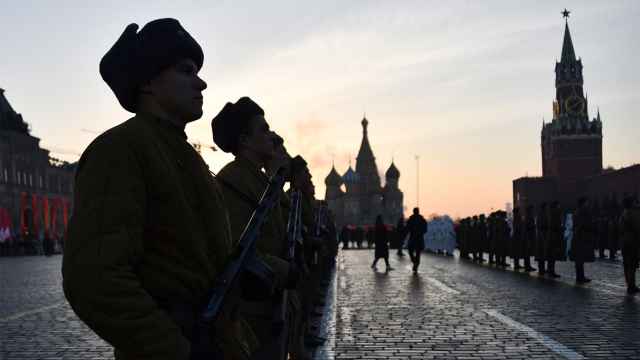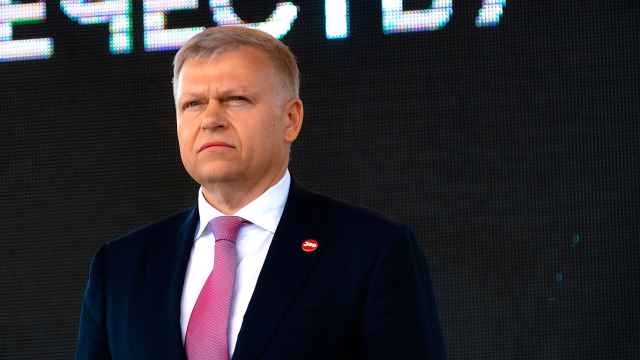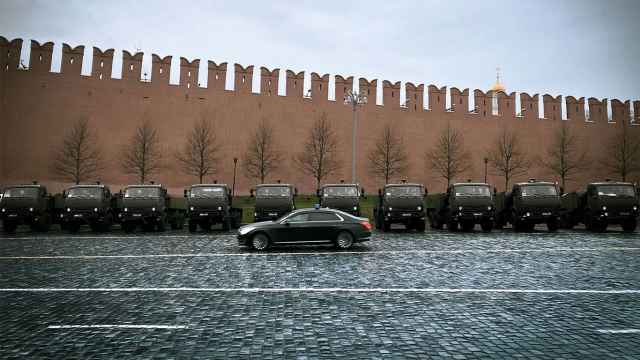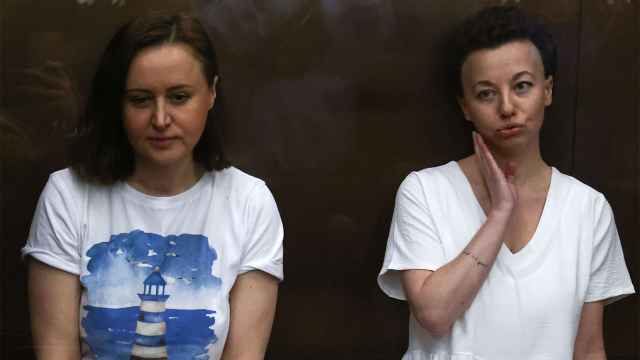On the eve of its initial public offering, the retail chain O'Key has agreed to sell to shareholders real estate and plots of land for about 3 billion rubles ($97 million), although the assets' value on the company's balance sheet is 5.66 billion rubles.
O'Key Group, the management company for the O'Key chain, agreed to sell several assets to firms controlled by its shareholders, according to the company's IPO prospectus, a copy of which was obtained by Vedomosti.
The deal includes three empty plots of land, two unfinished shopping centers and three operating stores, as well as several companies with no assets but a debt to the group of 646 million rubles, the prospectus said. No further details on the assets were given.
The buildings have a total of 123,600 square meters of space, while the land beneath them is 182,500 square meters, a source close to O'Key said. Based on those figures, the assets — not including the empty plots — could be worth 6.3 billion rubles to 9 billion rubles, said Konstantin Lebedev, head of Cushman & Wakefield's valuations department.
As of June 30, the assets had a book value of 5.66 billion rubles, the prospectus said.
But the shareholders will not pay the 3.03 billion rubles to O'Key immediately. The retailer will get 1.63 billion rubles in cash, while the remaining 1.4 billion rubles will go toward rental payments. The company plans to lease back the properties.
Additionally, the group could end up guaranteeing a 1.63 billion ruble loan for its shareholders, which they want to fund the deal. An O'Key spokesperson declined to comment on the difference between the pricing for the deal and the assets' book value.
"These plots are a noncore asset; they're deadweight requiring considerable investment for development," a second source close to O'Key said.
Selling a noncore property development businesses is standard practice for retailers, said Alexei Krivoshapko, a director at Prosperity Capital Management.
The Kopeika grocery store chain conducted a similar lease-back deal in 2008. The retailer sold 19 grocery stores with the right to rent them and buy them back for 1.5 billion rubles to Uralsib-Arenda, which is managed by Kopeika owner Nikolai Tsvetkov's UralSib.
A considerable discount is possible when selling property to a management company with the idea of renting it back, said Alexander Tarasov, Kopeika's chief financial officer.
Assets' book value can be both higher and lower than the sale price, said Yelena Khromova, a partner at the audit firm BDO.
But potential investors in O'Key said they were concerned about the difference in price.
"O'Key will have to write off a sum roughly equivalent to the difference in the assets' book value and the price of the deal. For the company, this sort of transaction represents a likely loss in value," said Olga Izyumova, a portfolio manager at Kapital Asset Management.
The retailer could possibly be leaving several important parameters of the deal undisclosed, she said. "The 1.4 billion rubles are counted as prepayment for rent, but the [future] rental rates are not disclosed. It's unclear how the company will take assets off its balance sheet if it's a sale to affiliated entities for lease-back," Izyumova said.
The deal will increase O'Key's percentage of rented space to 36 percent, from 21 percent now. According to VTB Capital, Magnit rents 41 percent of its property, while X5 Retail Group rents 53 percent and Dixy leases as much as 65 percent of its stores.
O'Key's rental costs in the first half were 1.2 percent of revenue, compared with 2.1 percent for Magnit and 3.3 percent for X5.
A source close to O'Key said the assets included land in Moscow, Nizhny Novgorod and St. Petersburg; two unfinished buildings (15,400 and 31,200 square meters) in St. Petersburg; two existing hypermarkets in the northern capital and one in Murmansk; retail equipment; and the right to rent the land beneath the stores.
O'Key's shareholders are Dmitry Korzhev (32 percent), Dmitry Troitsky (32 percent), Boris Volchek (25 percent) and Hillar Teder (11 percent).





